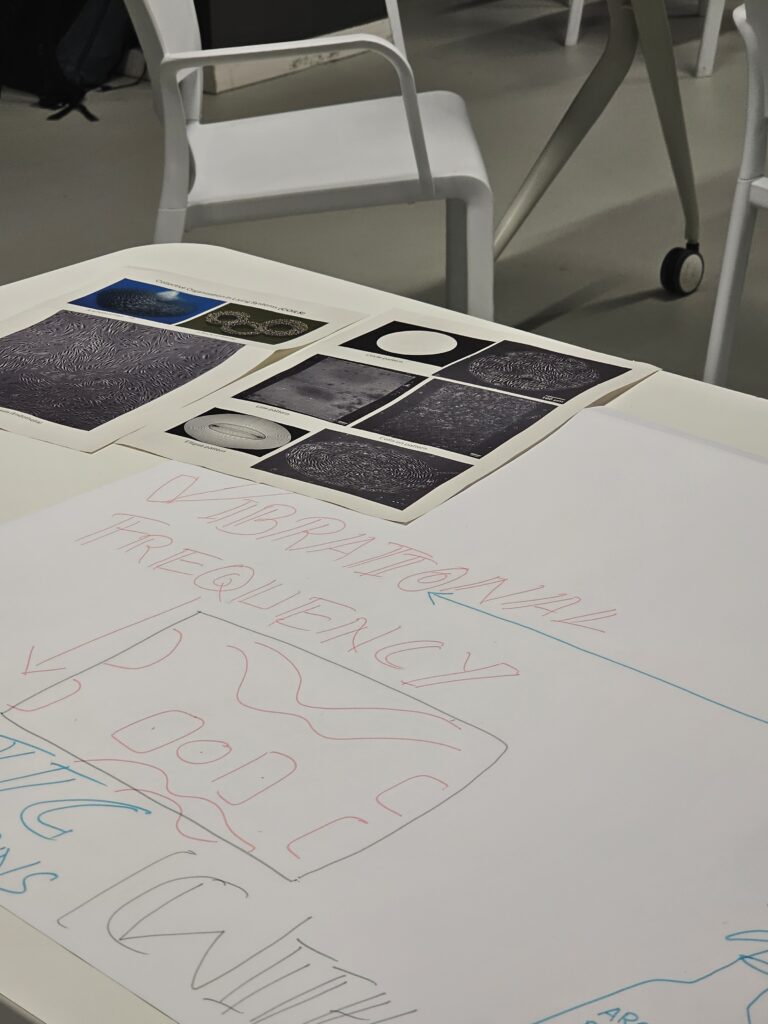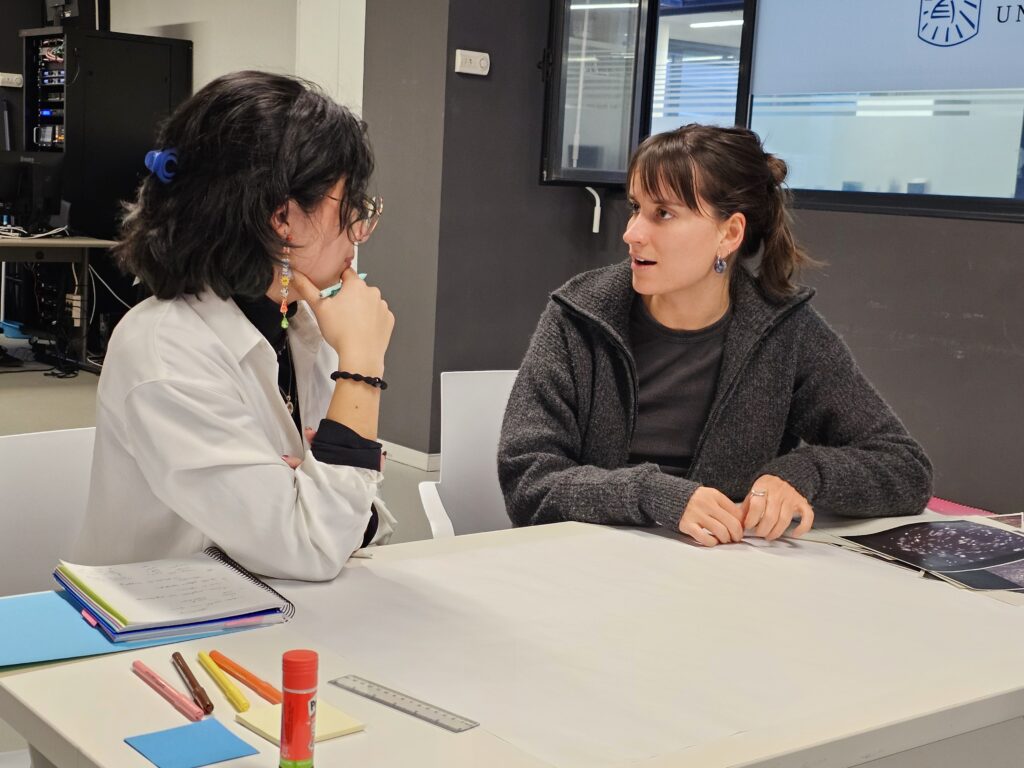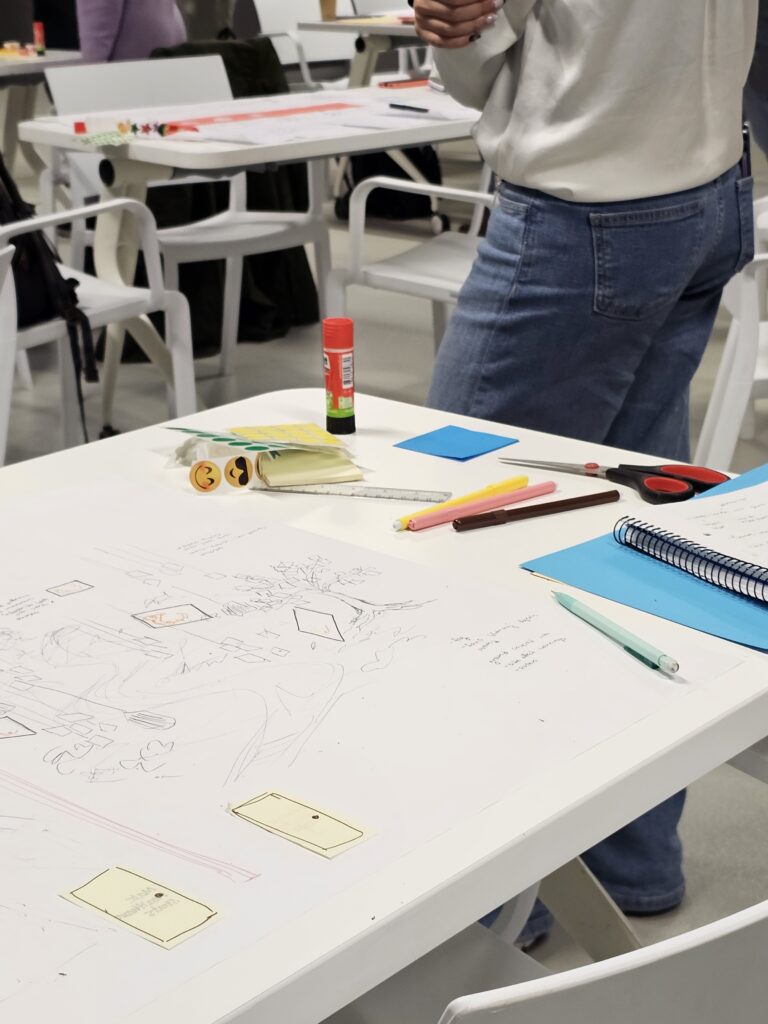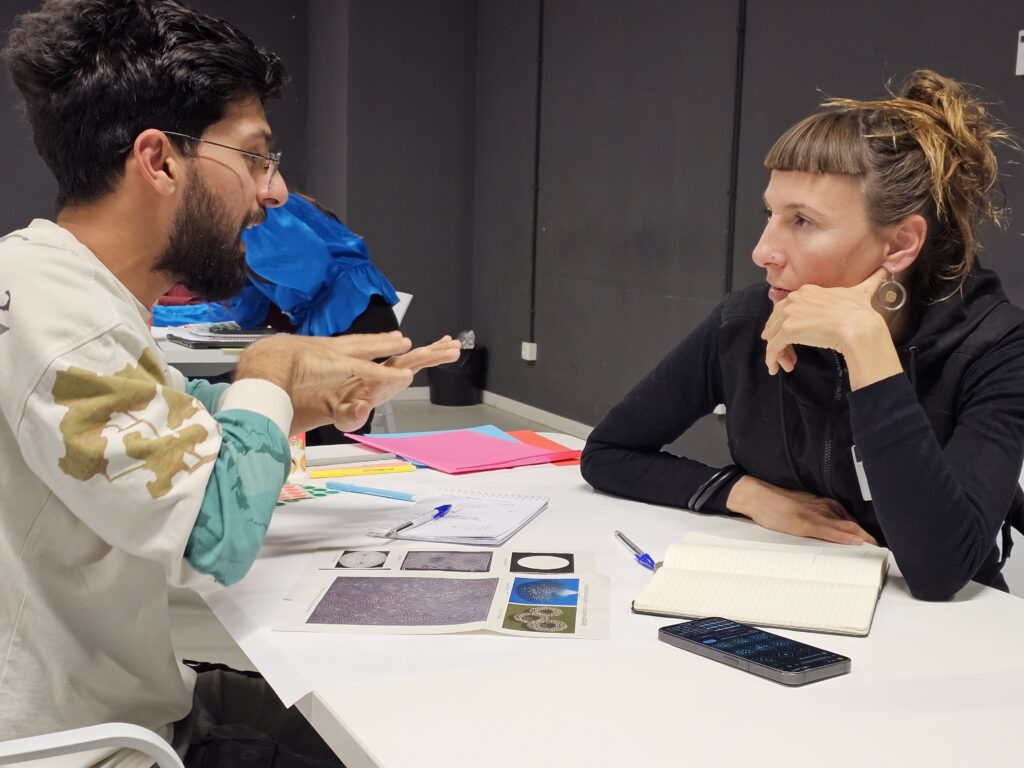Yesterday, the Institute for Bioengineering of Catalonia (IBEC) brought together around twenty artists and scientists for a co-creation hackathon as part of its new ‘Open Dialogues’ initiative. Following the event, two pairs of artists and scientists were selected to collaborate on developing two projects based on IBEC research over the next five months.
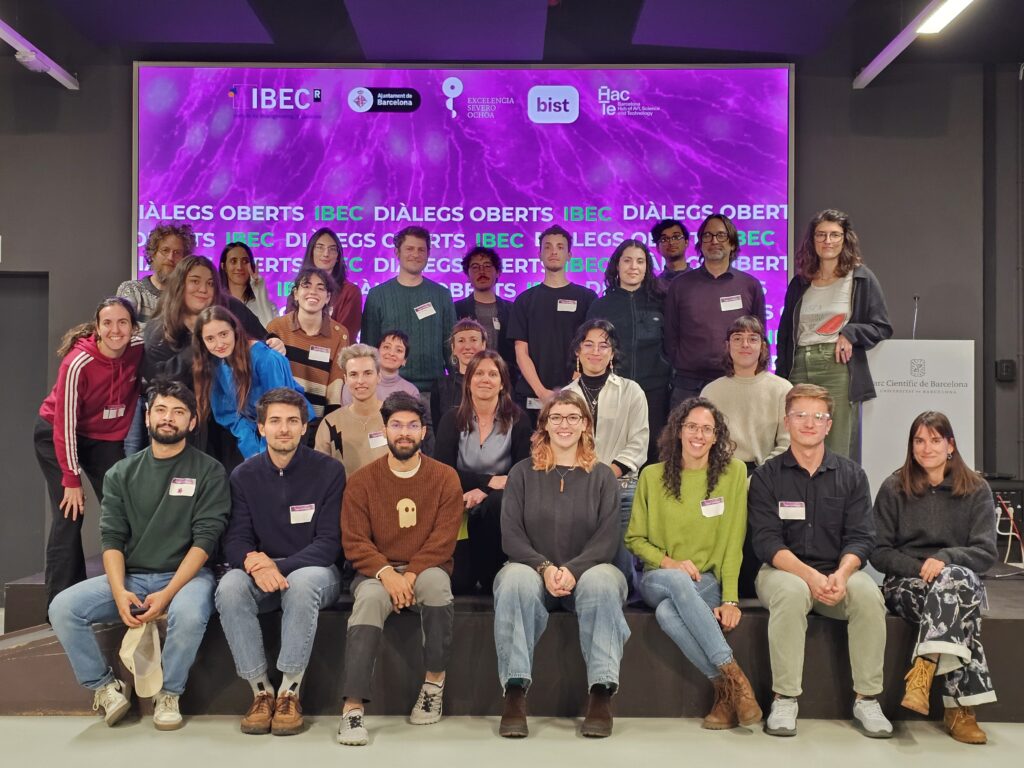
Yesterday, 19 November, the Institute for Bioengineering of Catalonia (IBEC) organised a Hackathon as part of its new ‘Open Dialogues’ initiative. The event, co-funded by Barcelona City Council and the Severo Ochoa Accreditation of Excellence, brought together a total of 11 artists and 11 researchers from the centre with the aim of promoting co-creation processes and finding meeting spaces that foster new forms of scientific and artistic research.
During the afternoon, participants followed an intensive agenda aimed at generating connections between artists and research staff and developing an artistic proposal based on IBEC’s scientific research. As a result of the dynamics, a total of 11 pairs were formed, each consisting of an artist and an IBEC researcher. These tandems worked on generating ideas, defining objectives and conceptualising a project that they would like to develop jointly over the next five months. The proposals were presented to the selection committee, made up of five members who are experts in various disciplines: Sergi Camacho Clavijo, Pilar Jiménez Sánchez, Laia Manera Salom, Anna Solé Tremoleda and Pep Vidal, who deliberated and selected the two winning teams. The general evaluation criteria were: originality, critical reflection, sustainability, potential for development with existing economic resources and connection with IBEC’s lines of research.
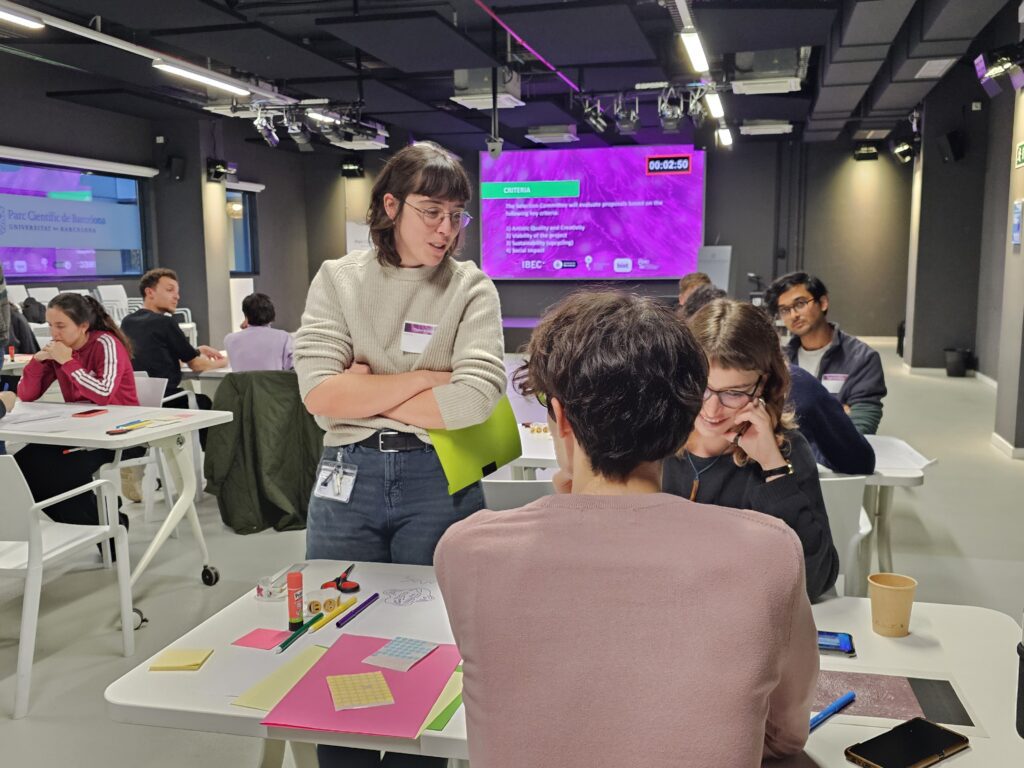
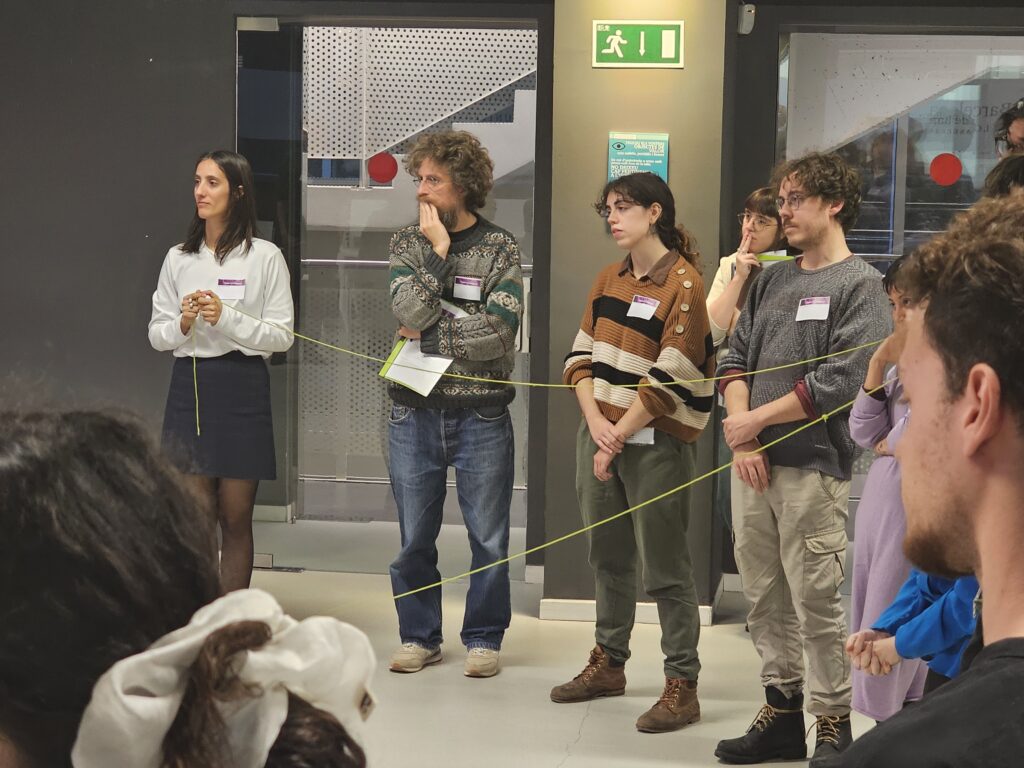
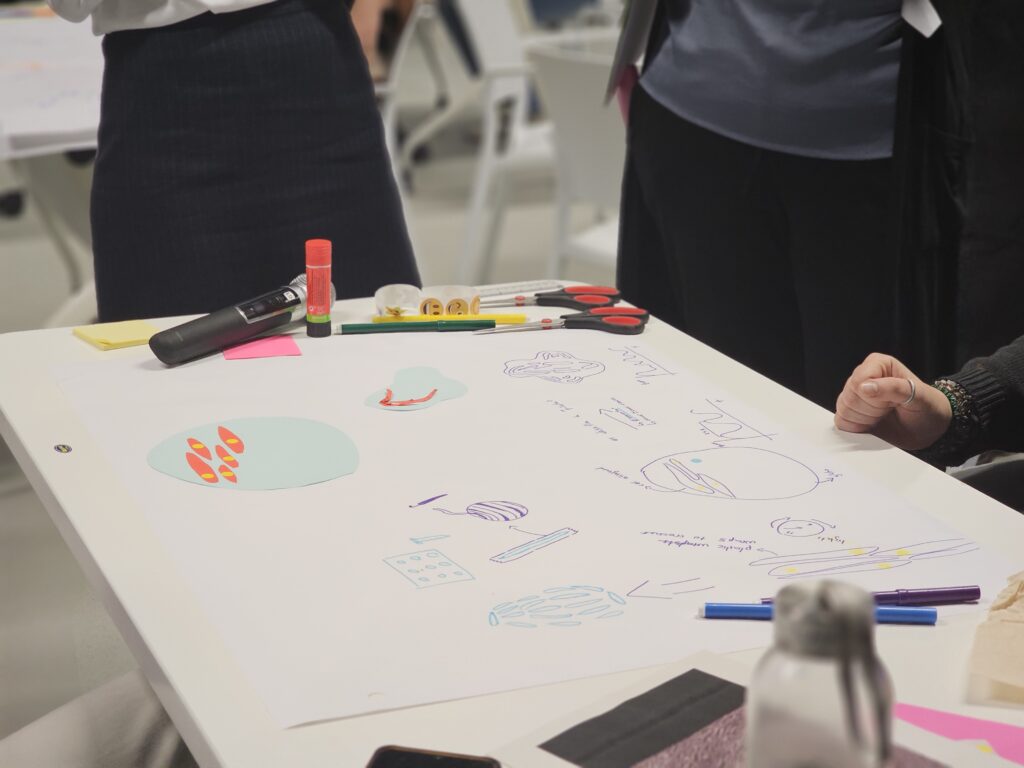
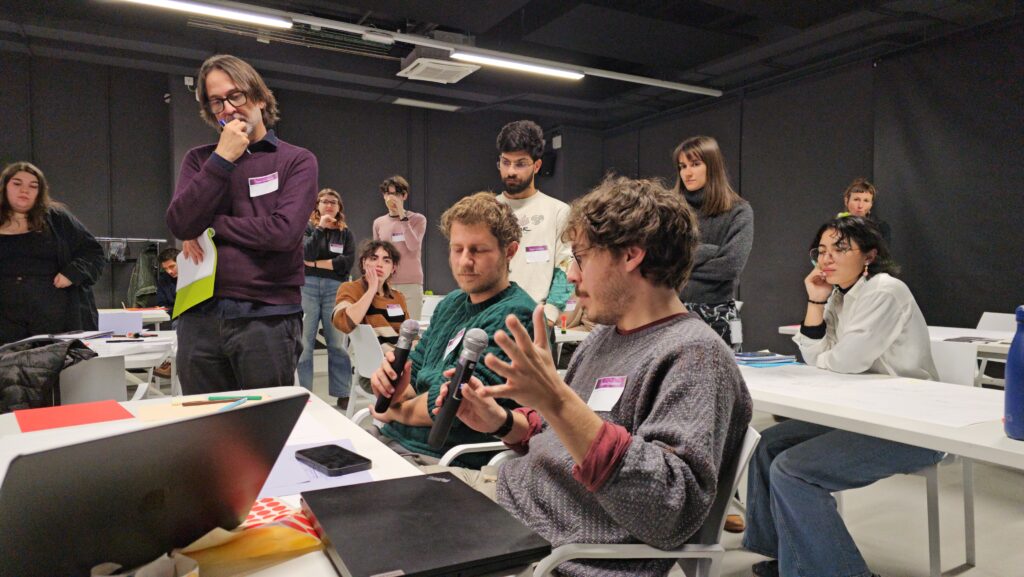
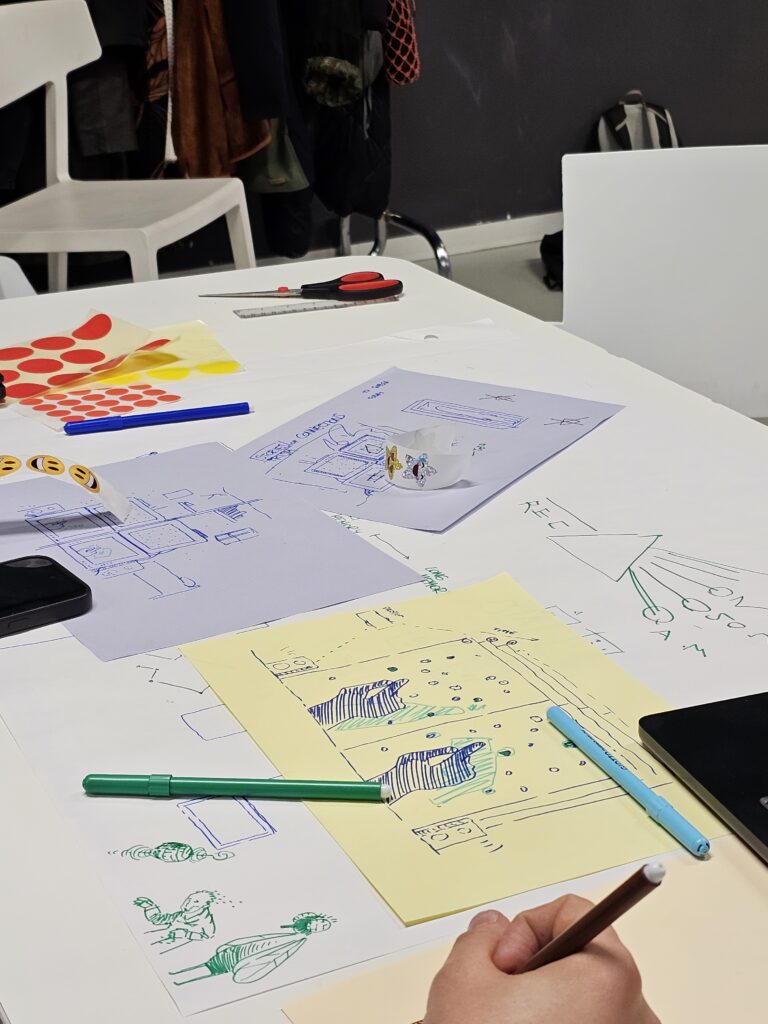
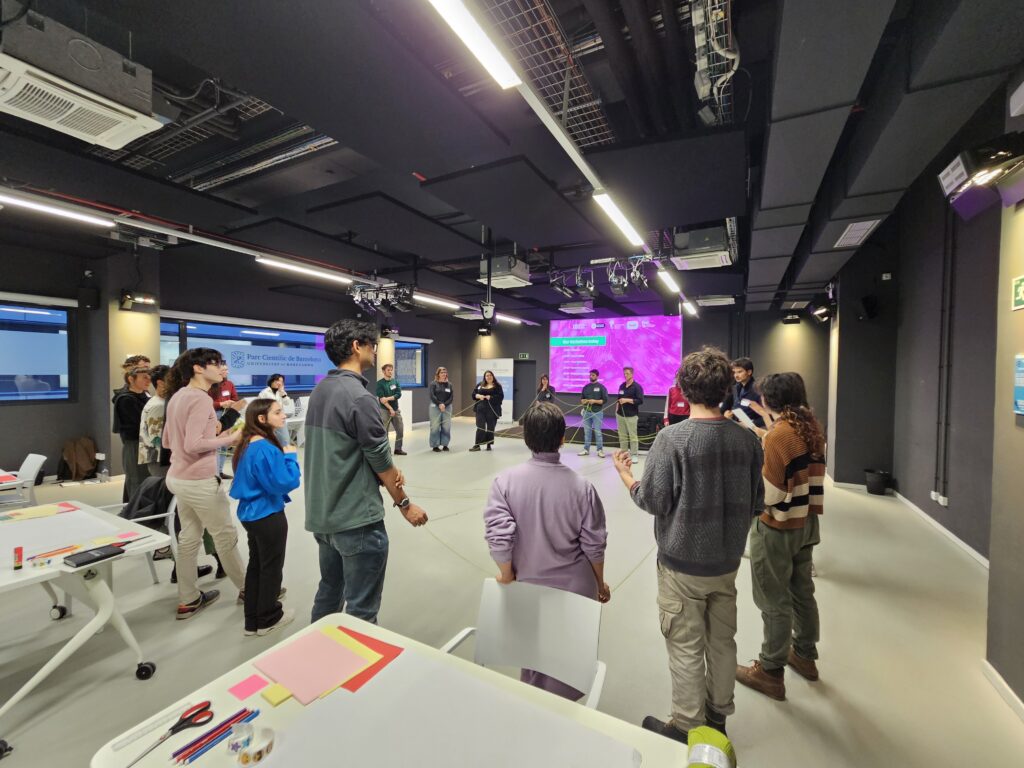
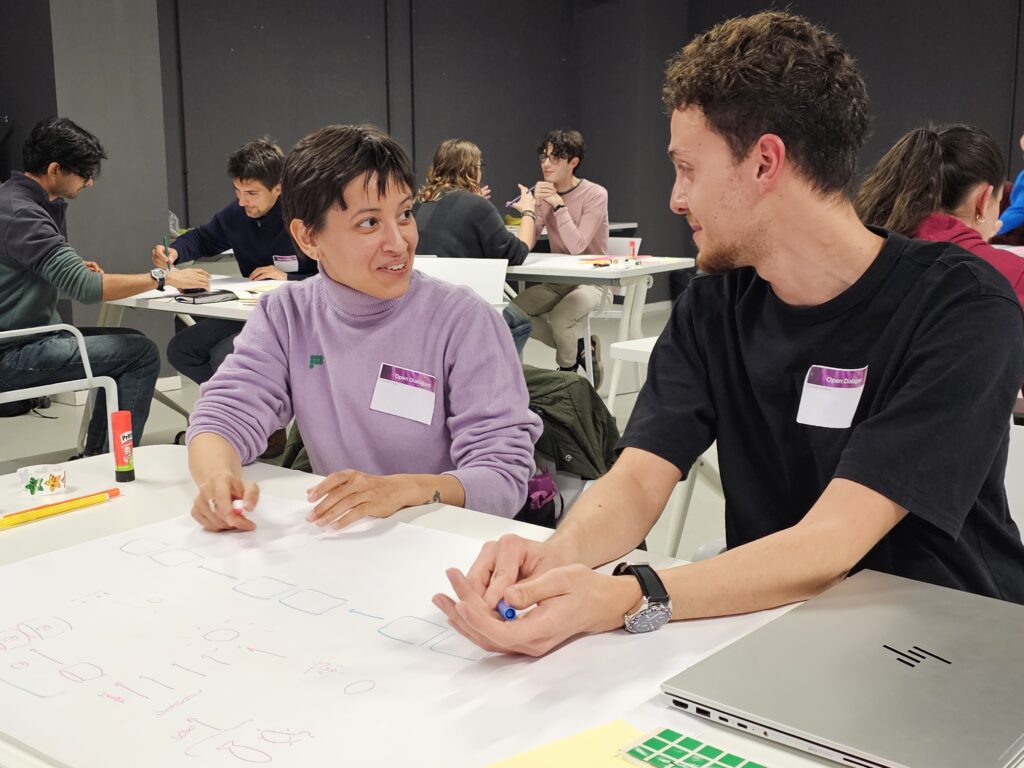
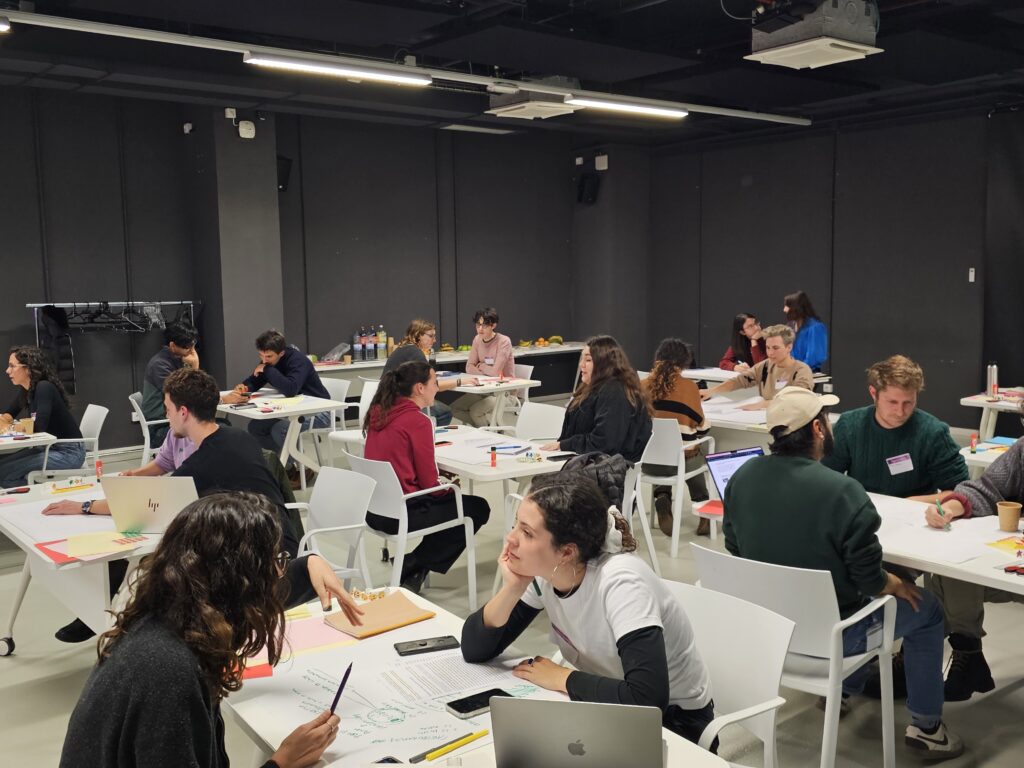
Two projects selected
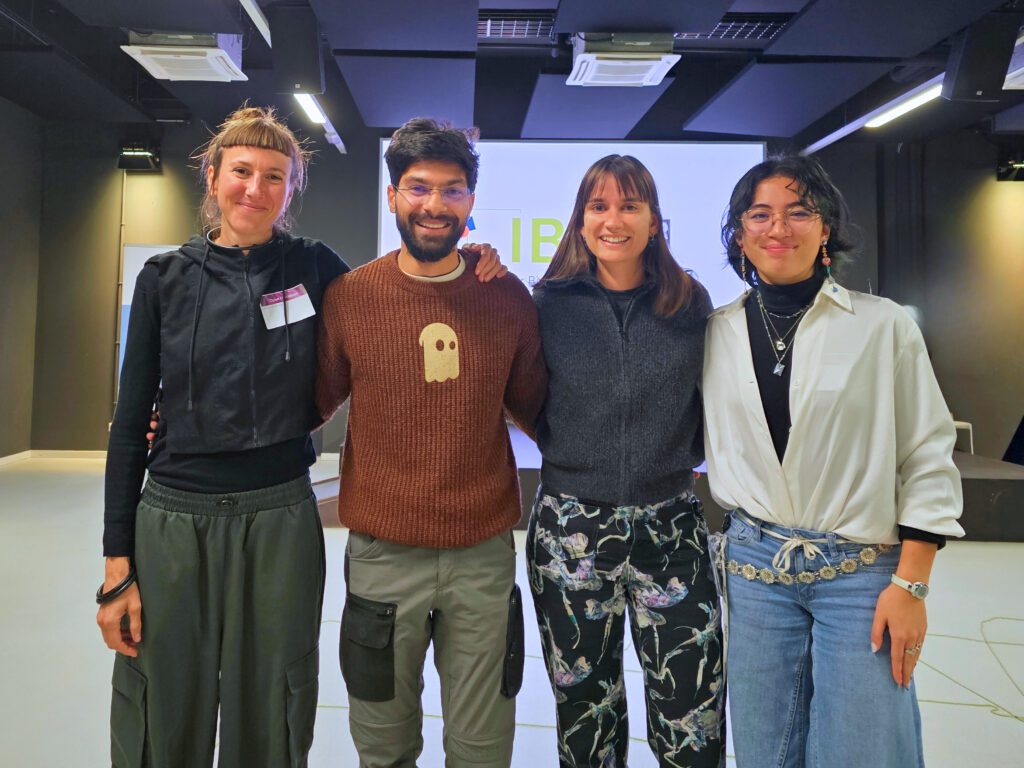
Two projects were selected following the evaluation. The selection committee named the following two pairs as the winners of the ‘Open Dialogues’ Hackathon: Yolanda Uriz Elizalde (artist) and Rohit Nautiyal (scientist) focused their project on transforming cellular movement into smells and sounds. Meanwhile, Janet van der Graaf (scientist) and Sophie Lubin (artist) will investigate the role of women in scientific research, among other things.
Over the next five months, both groups will develop their art and science projects based on IBEC research with the aim of generating new ways of understanding, communicating and solving complex problems. The process and results of this collaboration will be open to the public through a final collective exhibition.
The ‘Open Dialogues’ initiative forms part of IBEC’s Art and Science programme, which seeks to promote transdisciplinary research by incorporating an artistic vision into the creation and dissemination of scientific knowledge at the centre.
